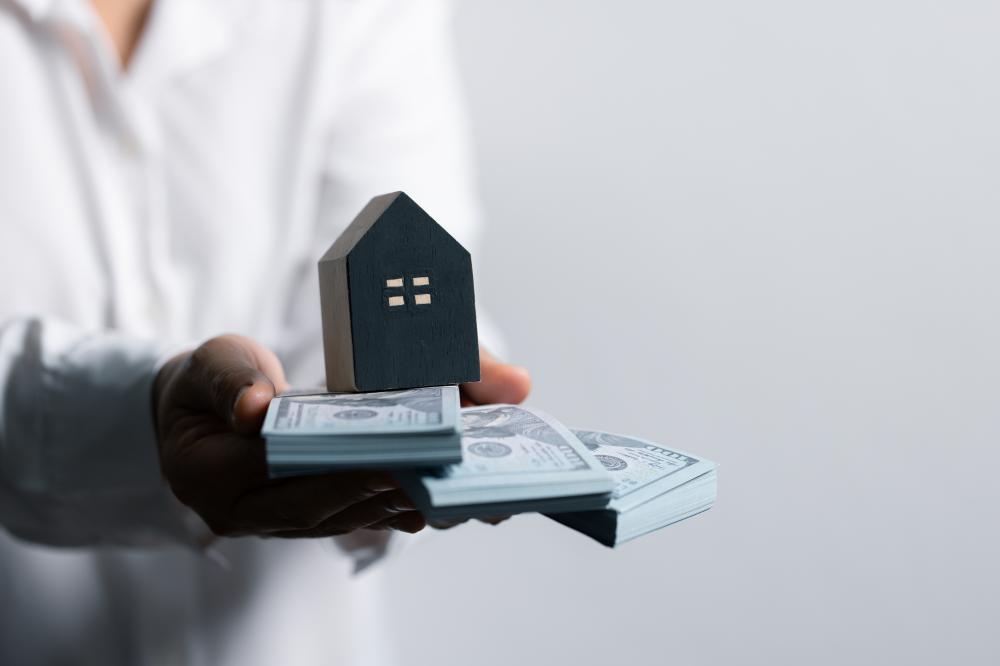
When clients come to me asking, "how much mortgage can I afford," it's not just a matter of numbers and calculations. It's about understanding their dreams, their concerns, and their financial realities. As a mortgage broker in Calgary, I've had the privilege of guiding many through this question, turning the complexities of mortgage affordabilities into clear, actionable paths to home ownership.
One of the first steps to understanding how much mortgage you can afford is looking at your income versus your debt. Lenders use this ratio to decide how much they believe you can afford to pay monthly. But it's not just about satisfying lenders; it's about ensuring you aren't burdened by a mortgage payment that could strain your lifestyle and savings.
Calculating Your Debt-to-Income Ratio
Calculating your debt-to-income ratio involves summing up your monthly debt payments and dividing them by your gross monthly income. The result, converted into a percentage, helps us and lenders understand your financial standing. A lower ratio means a better likelihood of managing your mortgage payments without financial stress.
The size of your down payment significantly influences how much mortgage you can afford. A larger down payment not only decreases your loan amount but can also offer you better interest rates and terms. However, saving for a big down payment should not deplete your savings entirely; it's crucial to have a financial cushion for unexpected life events.
Saving for the Future
I always advise clients to balance their down payment savings with their long-term financial health. In our discussions, we explore strategies for saving for a down payment while also contributing to retirement savings, emergency funds, and other financial goals. This holistic approach ensures that buying a home enhances your financial stability rather than undermining it.
Different mortgage products and interest rates can impact how much mortgage you can afford. From fixed-rate mortgages that offer stability in payments, to variable-rate mortgages that fluctuate with the market, each type has its advantages and considerations based on your financial situation and risk tolerance.
Exploring Options
In our conversations, we delve into the various mortgage options available, discussing their implications for your monthly payments and overall financial picture. It's about finding the right fit for your current situation while keeping an eye on future changes in your financial landscape.
Beyond the mortgage payment, there are other costs associated with homeownership that can affect how much mortgage you can realistically afford. These include property taxes, home insurance, maintenance, and possible homeowners association (HOA) fees. Planning for these expenses is crucial in determining your comfortable mortgage payment range.
In my years of experience, I've seen firsthand how varied the journey to homeownership can be. One client, for instance, prioritized a neighborhood with higher property taxes due to its excellent schools, adjusting their maximum mortgage amount accordingly. Another opted for a slightly higher mortgage rate in exchange for lower upfront fees to keep more cash on hand for renovations. These personal stories highlight the importance of tailoring mortgage advice to individual needs and goals.
Client Experiences
Each client's experience adds to my understanding of how diverse financial situations can be. Their stories enrich my approach, enabling me to offer nuanced advice that considers more than just numbers. It's about dreams, lifestyle choices, and long-term goals.
Getting pre-approved for a mortgage is an essential step in answering the question, " how much mortgage can I afford." It gives you a clear idea of your borrowing power and sets realistic expectations for your home search. But beyond the numbers, it also signals to sellers that you are a serious and prepared buyer, giving you an edge in competitive markets.
Benefits of Pre-Approval
Pre-approval not only helps in setting a budget for your home search but also offers peace of mind as you navigate the real estate market. Knowing exactly how much mortgage you can afford allows you to focus on homes within your price range, making the home-buying process more efficient and less stressful.
Understanding how much mortgage you can afford is more than just crunching numbers--it's about carefully considering your current financial situation and future goals. As your guide through this journey, I aim to provide personalized advice tailored to your unique circumstances, helping you make informed decisions that lead to successful homeownership. Whether you're buying your first home or refinancing, my goal is to ensure that the path to achieving your dreams is smooth and understandable.
Remember, "how much mortgage can I afford" is not just a question of economics. It's a stepping stone to realizing the dream of homeownership, balanced with the wisdom of financial planning and foresight. Let's navigate this journey together, with confidence and clarity.

Understanding how much of a mortgage you can afford based on your salary involves a combination of factors, including your monthly income, debts, and the current interest rates. Typically, a good rule of thumb is that your monthly mortgage payment should not exceed 28% of your gross monthly income. However, this is a simplified view. For a more personalized assessment, we consider your entire financial picture, including your down payment capacity and your lifestyle needs. Remember, each individual's or family's situation is unique, and what's affordable for you might not be for someone else. The goal is to find a sweet spot where you can comfortably make your mortgage payments without compromising your financial health.
To afford a $400,000 house, the answer varies significantly based on several factors, including the size of your down payment, the interest rate on your mortgage, and other financial obligations you may have. However, a general guideline is to have a gross annual income of at least $100,000 to comfortably afford a home in this price range. This estimation assumes a 20% down payment and that you're adhering to the 28%/36% rule for your front-end and back-end debt ratios. These are not hard and fast rules, but they do provide a good starting point for understanding what might be within your reach. Keep in mind, the best approach is to analyze your specific financial situation in detail.
With an annual income of $70,000, you're starting from a good place to assess how much mortgage you can afford. Using the guideline that your mortgage payment shouldn't exceed 28% of your gross monthly income, you can start to calculate potential monthly mortgage payments that fit within your budget. Depending on your down payment, debt obligations, and the mortgage terms, you might find that you can comfortably afford a mortgage that allows you to buy a home in the $200,000 to $300,000 range. This affordability range is a broad estimate and can vary greatly with interest rates, property taxes, and other homeownership costs. It's crucial to create a detailed budget that includes all potential expenses to ensure you're making a sustainable decision.
To afford a $500,000 mortgage, the income requirements can be quite stringent, depending on other variables such as your debt load, the size of your down payment, and the mortgage's interest rate. Generally speaking, you'd want to aim for a gross annual income of at least $150,000 to $175,000. This estimate adheres to the principle that your monthly housing expenses (including taxes and insurance) should not exceed 28% of your gross monthly income. It also considers the importance of maintaining a healthy ratio between your income and your total debt obligations. Preparing for a mortgage of this magnitude also involves careful planning around your savings and the ability to manage unexpected costs without compromising your financial stability.
Choosing the right down payment strategy is crucial for maintaining long-term affordability. While a larger down payment can reduce your monthly mortgage payments and possibly secure better interest rates, it's important not to deplete your savings entirely. I often recommend aiming for a down payment that strikes a balance between reducing your mortgage costs and preserving your financial safety net. This could mean aiming for a down payment of 20% to avoid private mortgage insurance, but stopping short of using all your savings. Each situation is unique, so we'll discuss what amount makes the most sense for you, considering your financial goals and current market conditions.
Interest rates play a significant role in determining how much mortgage you can afford. Lower interest rates can dramatically reduce your monthly payments and the total amount of interest you pay over the life of your loan, making homeownership more affordable. Conversely, higher rates mean higher monthly payments and a more expensive loan overall. That's why it's crucial to evaluate the timing of your home purchase and whether fixed or variable rates suit your financial situation best. We can explore current market rates together and decide how to leverage them to your advantage, ensuring that you lock in a rate that complements your financial plan.
Getting pre-approved for a mortgage is a critical step in the home-buying process. It not only gives you a clear understanding of how much you can afford, but it also signals to sellers that you're a serious and financially prepared buyer. This can be particularly advantageous in competitive markets, where being pre-approved might give you an edge over other potential buyers. Additionally, pre-approval can help expedite the purchasing process once you've found the home you want to buy. It provides peace of mind, allowing you to shop within your budget confidently. We can discuss this process in more detail and how to get started to ensure you're well-prepared when you find your dream home.
Calgary AB T2J5J5